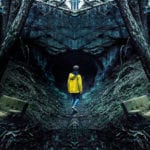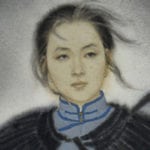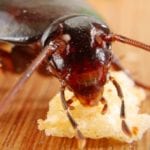 Our World
Our World  Our World
Our World  Crime
Crime 10 Dark Details of the “Bodies in the Barrels” Murders
 Animals
Animals The Animal Kingdom’s 10 Greatest Dance Moves
 Movies and TV
Movies and TV 10 Box Office Bombs That We Should Have Predicted in 2025
 History
History 10 Extreme Laws That Tried to Engineer Society
 History
History 10 “Modern” Problems with Surprising Historical Analogs
 Health
Health 10 Everyday Activities That Secretly Alter Consciousness
 History
History Top 10 Historical Disasters Caused by Someone Calling in Sick
 Animals
Animals 10 New Shark Secrets That Recently Dropped
 Movies and TV
Movies and TV 10 Forgotten Realities of Early Live Television Broadcasts
 Our World
Our World 10 Places with Geological Features That Shouldn’t Exist
 Crime
Crime 10 Dark Details of the “Bodies in the Barrels” Murders
 Animals
Animals The Animal Kingdom’s 10 Greatest Dance Moves
Who's Behind Listverse?

Jamie Frater
Head Editor
Jamie founded Listverse due to an insatiable desire to share fascinating, obscure, and bizarre facts. He has been a guest speaker on numerous national radio and television stations and is a five time published author.
More About Us Movies and TV
Movies and TV 10 Box Office Bombs That We Should Have Predicted in 2025
 History
History 10 Extreme Laws That Tried to Engineer Society
 History
History 10 “Modern” Problems with Surprising Historical Analogs
 Health
Health 10 Everyday Activities That Secretly Alter Consciousness
 History
History Top 10 Historical Disasters Caused by Someone Calling in Sick
 Animals
Animals 10 New Shark Secrets That Recently Dropped
 Movies and TV
Movies and TV 10 Forgotten Realities of Early Live Television Broadcasts
10 Insanely Violent Rebel Groups Active Right Now
As the saying goes, the one thing that binds humanity together is its mutual desire for division. Whether it’s over politics, religion, race, or land, we can always find something to fight about. In fact, there are groups all around the world who practice the belief that their beliefs are better than your beliefs, and they will kill to make sure you believe it.
10Popular Front For Recovery
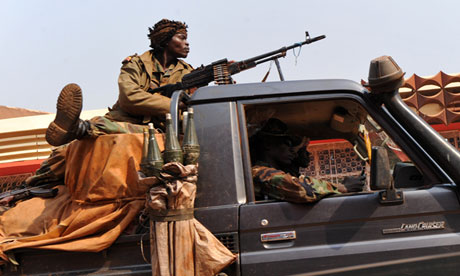
The Central African Republic is no stranger to political turmoil. When General Francois Bozize became president in 2003 after toppling the previous government, things only seemed to get worse. Multiple human rights violations, public executions, torture, and human trafficking are just a few of the charges that have been aimed at Bozize’s regime, so it’s no surprise that the Central African Republic has also become a birthing pool for dozens of militant rebels, each with their own ideals and all vaguely aimed at taking Bozize out of power. Probably the largest of these is the Popular Front for Recovery, or FPR.
Since 2008, the FPR has been mounting attacks on soldiers and civilians in both the Central African Republic and the neighboring country of Chad. As the threat grew, the armies of both countries fought back against the FPR, forcing the rebels to surrender and sign peace treaties on several occasions—all of which only lasted long enough for the FPR to regroup and start fighting again. In early 2012, the FPR took nearly 30 Central African Republic soldiers hostage and laid siege to the capital of Chad. Eventually, the FPR surrendered again, but no one knows how long that will last.
9Real Ulster Freedom Fighters
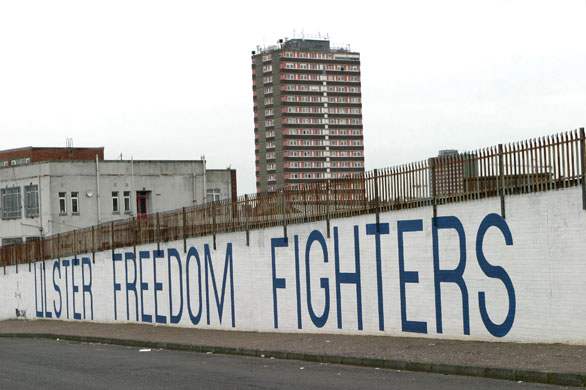
Rebel activity in Ireland has been a problem throughout history, especially in Ulster in the north. The paramilitary Ulster Defence Association was formed in the 1970s and carried out a terrorist campaign in support of Northern Ireland remaining part of the UK. The group signed a ceasefire in 2007, but now there’s a smaller group carrying on the UDA legacy.
Known as the Real Ulster Freedom Fighters, or Real UFF, they formed after breaking away from the larger UDA group, intent to carry on the militant ideals of their former group. They’ve been responsible for about 25 small bombings in Ireland since 2009, mostly targeted against Catholics (although they’ve also promised death to the leaders of the UDA). In 2010 they planted a pipe bomb in a Catholic elementary school; other times, they simply surround their targets and beat them senseless with baseball bats.
8Regional Committee For Viticultural Action
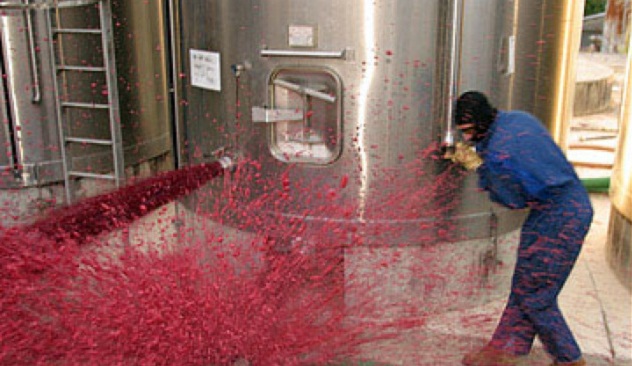
The Regional Committee for Viticultural Action (CRAV) is described by Wikipedia as “radical wine producers.” And . . . yeah, that’s basically what they are. Unhappy with the falling price of wine in France, a secret coalition of wine makers has begun bombing grocery stores and setting fires along major wine transport routes to stop foreign wine from being brought into the country.
In 2006, the CRAV sent a warning to then-president of France Nicolas Sarkozy, saying that if wine prices weren’t taken care of, “the blood would flow.” Although they never carried out the threat (if it was actually a death threat against the president at all), isolated incidents still pop up from time to time, ranging in severity from graffiti, to more arson, to the beating of grocery store owners who carry foreign wines.
7Front For The Liberation Of The Enclave Of Cabinda
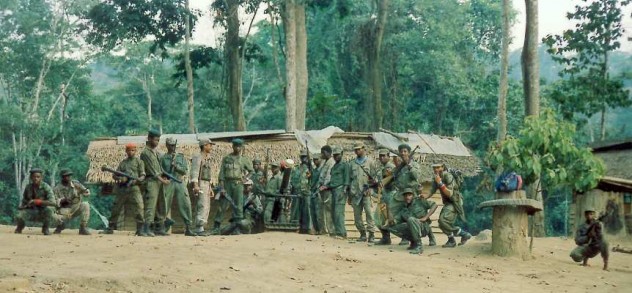
In 2010, a bus carrying the Togo soccer team was ambushed as it traveled through Angola, en route to the 2010 African Cup of Nations Tournament. A small group of armed men surrounded the bus and fired indiscriminately into the vehicle, killing three people and wounding six others. Not long after, the Front for the Liberation of the Enclave of Cabinda (FLEC), stepped forward and took responsibility for the unprovoked attack. But, they said, it was an accident—at least in the sense that they didn’t mean to shoot the soccer players. They only meant to kill the guards escorting the bus, who were soldiers in the Angolan Army.
The rivalry between Angola and Cabinda has been ongoing for over 30 years. FLEC formed in 1963, during the Portuguese Colonial War. At that time, everyone was fighting for the same cause: independence. When Portugal finally handed over the reins in 1975, Angolan soldiers immediately invaded the Cabinda territory and claimed it as a province. FLEC fought back and hasn’t stopped since. Although the “official” Angolan Civil War ended in 2002 (victory to Angola), FLEC cells are still mounting guerrilla attacks on Angolan Armed Forces and killing foreigners who enter the province.
6M23
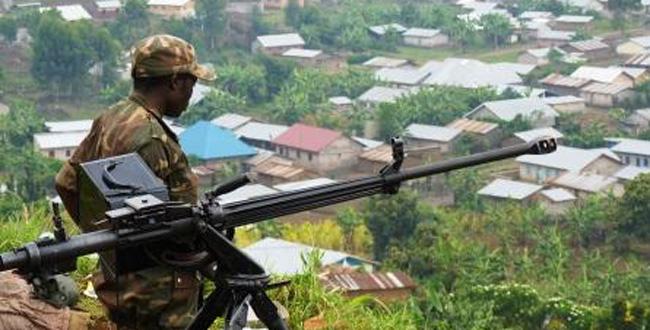
The March 23 Movement, usually abbreviated to M23, is a rebel force currently fighting against the army of the Democratic Republic of Congo (DRC). They’re named after March 23, 2009, the date a peace treaty was signed by the DRC which recognized a former militant group as an official political party and absorbed its soldiers into the national army. However, by 2012 it became obvious that the government wasn’t completely sticking to the peace treaty, so 300 soldiers defected from the army under the leadership of General Bosco “The Terminator” Ntaganda and took to the hills.
In less than a year, M23 has raised hell all over the Democratic Republic of Congo. In November 2012, M23 rebels took over the city of Goma, population 1 million, and essentially held the entire city hostage until the DRC government would give in to their demands.
5Black Eagles
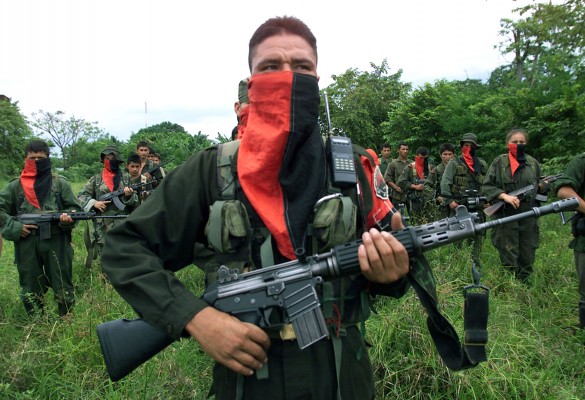
At the turn of the millennium, Colombia had something close to a dozen paramilitary rebel groups—it was chaos. One of the largest, the AUC, became the target of intense negotiations by the Colombian government, and the majority of the rebels (about 17,000) had surrendered by 2006, agreeing to re-enter society, find jobs, and forget their lives of violence. The Colombian government set up a new department called DDR (Disarmament, Demobilization, and Reintegration) to help the ex-militants adjust, and all seemed well.
Then, they sort of “lost track” of about 5,000 people who were supposed to be finding jobs, and out of the shattered remains of the AUC rose the Black Eagles—a “new generation” of rebels who jumped in to seize control of the gap in the cocaine trade left by the AUC. Other rebel groups also formed, such as the ultra-violent Los Rastrojos, and they’ve been fighting each other all over Colombia ever since.
4Sect Of Revolutionaries
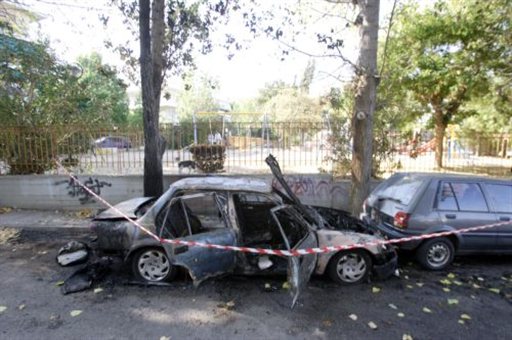
As the Greek economy continues to struggle, most citizens are trying their best just to stay on their feet. Others, however, want the entire system to completely collapse. That’s the sworn goal of the Sect of Revolutionaries, a small group of urban guerrillas who have been targeting tourists, journalists, and policemen in a string of violent killings since 2009. Sometimes known simply as Rebel Sect, the group took the blame for the murder of a journalist named Sokratis Giolias, who was found riddled with 15 bullets in 2010.
Following the assassination, the Sect sent a statement to the government: “Greece is no longer a safe haven of capitalism. We aim to transform it into a war zone of revolutionary processes, with arson, sabotage, fierce demonstrations, bomb attacks, and armed killings. We are at war with your democracy.”
3Republican Action Against Drugs
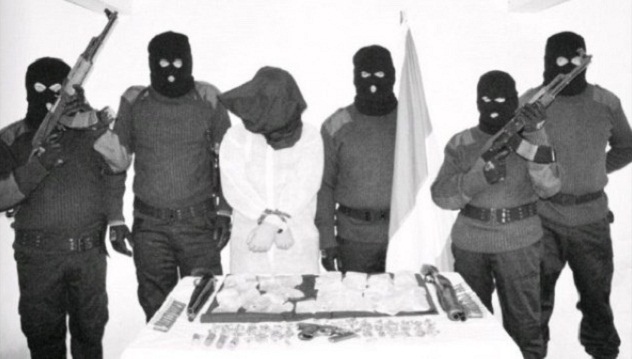
A vigilante group of sorts, the Republican Action Against Drugs (RAAD) has sworn to deliver justice to drug dealers in Derry, Ireland. But, unlike Batman, their idea of justice is pretty brutal. They don’t actually kill the drug dealers—they just shoot them in the kneecaps and set fire to their homes.
Since their first attack in April 2009 (a pipe bomb tossed through a suburban window), RAAD has claimed responsibility for as many as 45 attacks in and around the Derry region. Although they claim not to have any political agenda, it’s been rumored that they’ve joined forces with the Real Irish Republican Army, which has been behind several large-scale bombings and attacks on British soldiers.
2Caucasian Front
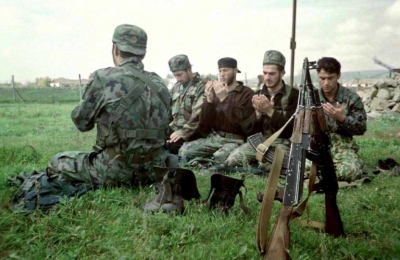
The Caucasian Front is a small group of Islamic rebels located in Chechnya, a federal republic of Russia. They were originally allied with the Chechen Republic of Ichkeria—which isn’t officially recognized as a country, although they’ve been in a quiet war with Russia over that fact since 1991. Since then, they’ve become something of a private army for the Caucasus Emirate, a similar pseudo-government formed by the former leader of the Republic of Ichkeria. And with that alliance, the death toll has been steadily rising.
Since 2005, the Caucasian Front has been responsible for nearly 350 deaths, most commonly through suicide bombings. They were behind the 2005 raid on the Russian village of Nalchik that left 138 dead, as well as the 2010 bombing of a Moscow subway. Most recently, they perpetrated the 2011 suicide bombing at the Domodedovo International Airport. There’s currently a $5 million bounty on the head of Doku Umarov, the leader of the Caucasus Emirate.
1FARC
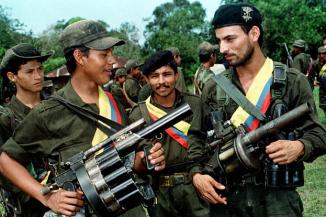
The Revolutionary Armed Forces of Columbia (FARC) is one of the largest rebel forces in the world. They’ve been called a minor army, not because they’re small, but because about 30 percent of their force is comprised of children—somewhere around 11,000 in total. Ever since the start of the ongoing Colombian armed conflict in 1964, FARC has been around in at some shape or form, and they haven’t been quiet about it.
In addition to being one of the world’s largest rebel forces, they’re also one of the best-armed—they typically use mortars to launch long-distance attacks, and defend their territory by burying anti-personnel land mines along the roadways. There are more people killed every year by land mines in Colombia than anywhere else in the world.


